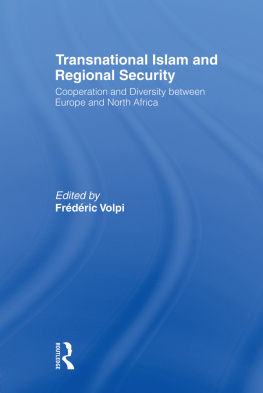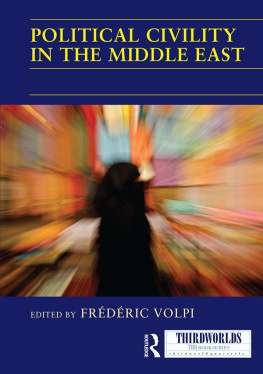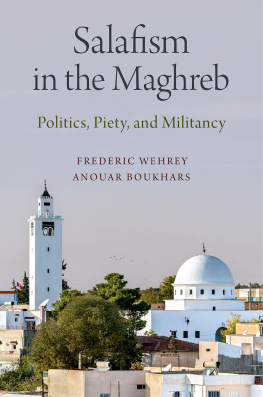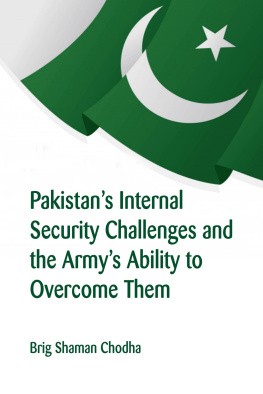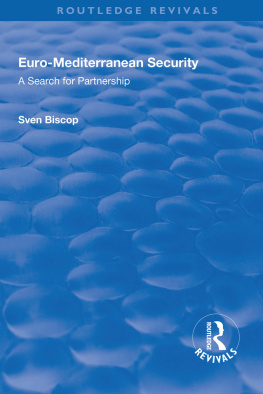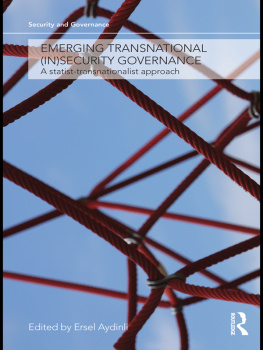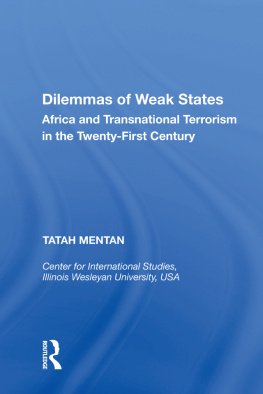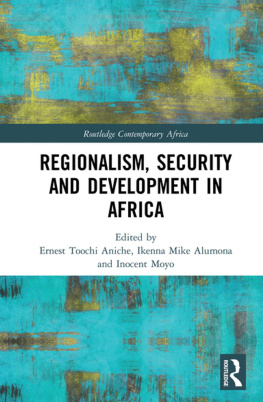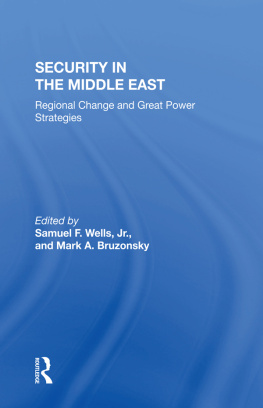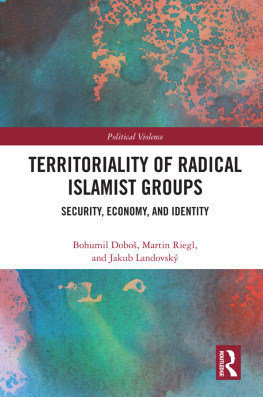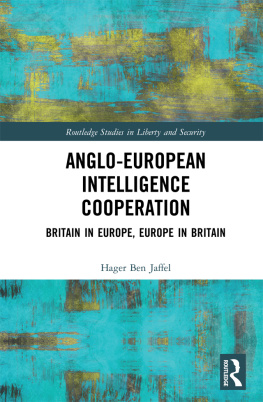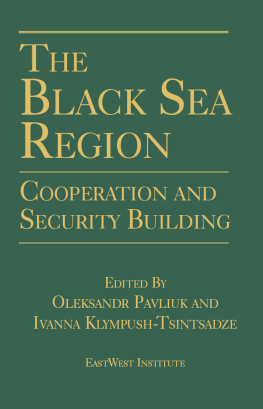Transnational Islam and Regional Security
This book investigates the impact of a new brand of transnational political violence produced by radical Islamist groups from the Maghreb and by state policies on the regional security dynamics. It describes the dominant perception of the problems and the strategies devised by European and North African states in order to address it. The book details the successes and failures of co-operation between states and society on both shores of the Mediterranean.
Investigating the grand security strategies that have been devised for the Mediterranean region after the Cold War and after 9/11, the contributors focus on the role of police and military apparatuses in securitizing the new threats that have become prominent after 9/11, and unveil the unintended consequences of these strategies.
The contributors analyze the relationship between Islamist groups, the state and society and highlight some key factors behind political violence and radicalism. They outline how a better use of the rule of law, migration policies, and societal dialogue might provide useful alternatives or complements to the mostly securitarian strategies that are currently dominant in the region.
This book was first published as a special issue of Mediterranean Politics.
Frdric Volpi is at the School of International Relations, University of St Andrews, UK.
Transnational Islam and Regional Security
Cooperation and Diversity between Europe and North Africa
Edited by
Frdric Volpi
First published 2008 by Routledge
2 Park Square, Milton Park, Abingdon, Oxon, OX14 4RN
Simultaneously published in the USA and Canada
by Routledge
270 Madison Avenue, New York, NY 10016
Routledge is an imprint of the Taylor & Francis Group, an informa business
Transferred to Digital Printing 2009
2008 Frdric Volpi
Typeset in Times 10/12pt by the Alden Group, Oxfordshire
All rights reserved. No part of this book may be reprinted or reproduced or utilised in any form or by any electronic, mechanical, or other means, now known or hereafter invented, including photocopying and recording, or in any information storage or retrieval system, without permission in writing from the publishers.
British Library Cataloguing in Publication Data
A catalogue record for this book is available from the British Library
Library of Congress Cataloging in Publication Data
ISBN10: 0-415-37126-0 (hbk)
ISBN10: 0-415-49526-1 (pbk)
ISBN13: 978-0-415-37126-1 (hbk)
ISBN13: 978-0-415-49526-4 (pbk)
CONTENTS
FRDRIC VOLPI
MICHAEL J. WILLIS
LUIS MARTINEZ
ABDENNOUR BENANTAR
FEDERICA BICCHI & MARY MARTIN
JAVIER JORDN & NICOLA HORSBURGH
SAMI ZEMNI
MICHAEL COLLYER
RICHARD GILLESPIE
FRDRIC VOLPI
The Mediterranean region, particularly at its interface between the European Union (EU) and North Africa, presents an interesting context in which to investigate the reorganization of international policies and specifically security policies in the post-9/11 era. At first glance, the region might seem to exemplify quite well the conventional distinction between a developed, peaceful and democratic North and an underdeveloped, violent and undemocratic South. Furthermore, it would correspond to a predicament where Europe is confronted to external threats coming from its southern neighbours that need to be contained, and where the Mediterranean Sea acts as a frontier and natural barrier between these two geopolitical (and some might add civilizational) entities. However, a more thorough examination of the situation reveals that such a simple North/South distinction is not particularly helpful to explain the political and security dynamics of the region after 9/11. While the argument that the threat and particularly the new terrorism of radical Islamist networks came from the South could still retain its primacy at the time of the 2004 Madrid bombings, the 2005 London bombings showed that the North was quite capable by producing its own, home-grown security risks. In addition, new security concerns in Europe led liberal governments to rethink and in some cases reorder the rules governing the relationship between individual rights and national security from a perspective that is not too dissimilar to the one prevailing in the countries on the southern shores of the Mediterranean. As the countries of the South are pressurized to become more democratic, those of the North are under pressure to become more secure, even when it entails a reduction of some civil liberties, and so the gap between the two sets of polities narrows down as a result of this two-way process.
This article highlights the conceptual and practical parameters of this new rapprochement between Europe and North Africa. In particular, the key changes in the foreign and security policies of the countries and international organizations around the Mediterranean before and after 9/11 are indicated. Finally this study stresses the actual and potential shortcomings of these state-led transformations in the face of a multifaceted Islamist movement that is not sufficiently well understood by those policy makers and analysts who are developing strategic visions for regional collaboration.
Re-imagining Security Transnationally
Emanuel Adler and Michael Barnett (1998) suggested, following Karl Deutsch, that security communities came into being at the international/regional level when states increasingly shared a same definition of the problem, a same way of thinking (shared norms) and of doing (shared practices), and most importantly a same notion of security defined in terms of the community and not its individual members a feeling of we-ness. Nowadays, there are indications that some of these characteristics are increasingly coming together in the Mediterranean though perhaps not in the fashion that Adler had envisioned, or hoped for (Adler and Crawford, 2006). The contemporary debate about the normative power of the EU always more or less assumed that the creation of a regional community would be based on the normative premises of the European acquis communautaire rather than on the norms and practices prevailing outside the core European regions (but cf. Bicchi, 2006). Yet, in the current international climate, even well-entrenched European democracies are facing what may be likened to an identity crisis, and some well-established liberal-democratic norms and practices appear to be if not up for grabs, at least under serious reconsideration. (This is, to be sure, a view based far more on the words and actions of over-eager politicians and the instant polls produced by the media than on the thoughtful considerations of members of the judiciary or legislative apparatuses; but even among the latter the debate has begun).1 Thus, the regional security community that can be created in the Mediterranean may not necessarily be constructed via the accretion of the more supple political norms of the EU, but it could also be built on a set of basic insecurities (and associated security practices) that are increasingly shared by states, and to some extent populations, on both shores of the Mediterranean.
In the short term at least, the emerging template for security community that is highly dependent upon how regional players define the putative common threat that face them all as well as, in some cases, how they are unable to define it with sufficient clarity. A brief glance at the array of security measures, policies and initiatives developed since 9/11 indicates that all types of international activities national, regional and global have been deployed to assess and meet this new challenge. At the state level, both domestic politics and bi/multilateral policies constitute the bulk of the responses. At the regional level, international organizations and programmes the EU (particularly the Euro-Mediterranean Partnership (EMP)), the North Atlantic Treaty Organization (NATO), the Organization for Security and Co-operation in Europe (OSCE), and so on provide important adds-on to state policies. Finally, at the global level, the geostrategic dimension of the fight between the United States and al-Qaeda (loosely defined) provide a context and background against which national and regional strategies can be contrasted, and trends and exceptions identified.

